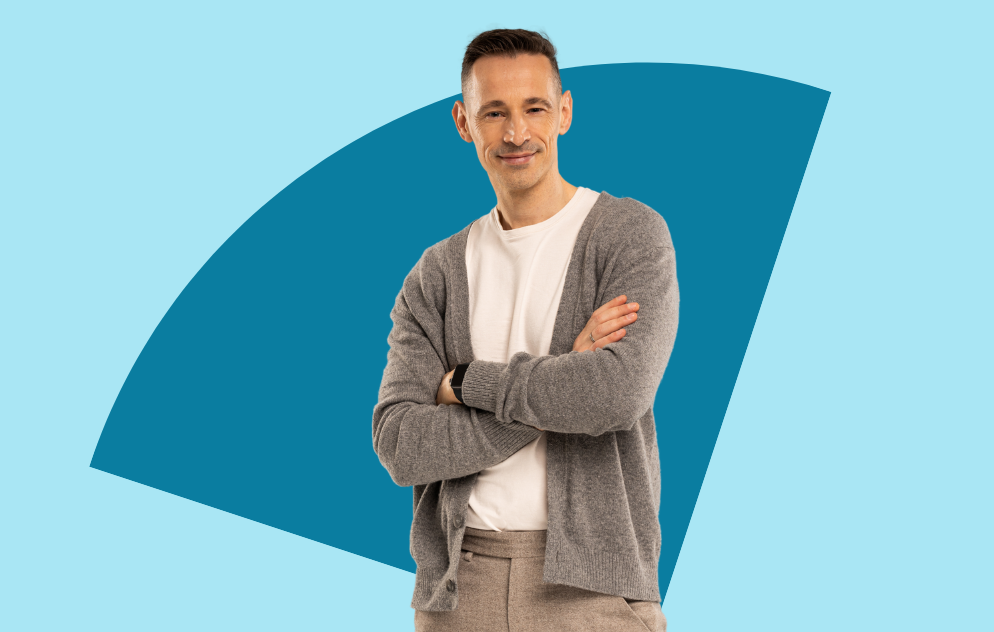Since 2009 at TOPdesk: Career Path of a Senior Software Engineer
A developer’s career path contains numerous challenges and opportunities. This is well exemplified by the story of our senior developer, Krisz, who was the third employee in TOPdesk’s Hungarian office and has remained a key figure in the team ever since. Krisz joined us in 2009 and, over the past decade, has participated in numerous projects, gaining a wealth of experience. In this interview, he shares what motivated him, how he managed to persevere, and what advice he has for junior developers.

What attracted you here as a junior developer, and what keeps you here as a senior developer?
Initially, I tried various jobs and realized that I should focus my skills on work that truly interests me. My goal was Java development because I believed that even if I got rejected, at least I would be working on something I love. TOPdesk particularly caught my attention because it was chosen as the best employer in the Netherlands at that time. The was also different: Not only did they emphasize my professional skills, but they also placed great importance on my personality. I really liked this because I felt that my colleagues would be selected based on similar values, and we would be able to work together more effectively. Over the past 15 years, continuous learning,and my colleagues have kept me here. The company’s ability to balance professional expertise and personal attributes has always been crucial for me. Despite changes, the company has maintained its high standards and strong position in Hungary.
Was there a memorable moment or project that you are particularly proud of?
I would mention three projects:
SSP intoduction: This was initially assigned to a team, but it turned out to be a huge undertaking. We built a framework where we provided the backbone and a way for the teams to fill it with content. The team could then integrate content related to changes. It was a long project, but it was well received by the clients.
Establishing the Frontend Guild: This was essentially a transformation of a job role. I wanted to encourage team members to ask for help confidently because I noticed they weren’t doing so. They would only ask when things were already critical. So, I made myself available to them at any time. Over a few years, this evolved into a full Guild and then into a 4-person team, which operated autonomously. Every day, we did what we discussed in the morning. This brought both freedom and a lot of responsibility.
Design System team: Although we have been working on reusable components for about eight years, we truly gained momentum in the last three years with the establishment of the Design System team. Today, the new user interfaces are built from elements we created. This significantly increased consistency, and developers could work more efficiently with the components across different projects. The development of the Design System took several years. Initially, we experimented with simple CSS solutions, but as the project grew, we managed to create a durable, unified system with the help of professional consultants. The goal of the Design System is for every developer to use the same elements, similar to how a room is built with IKEA furniture. This process taught me that the foundations need to be built solidly to ensure the work remains sustainable in the long term.
"I promised myself that I would resign if I ever found my daily tasks becoming monotonous. I have a responsibility to my family to maintain my value in the job market. A developer can quickly become redundant if they spend years just repeating the same tasks. However, in the past 15 years at TOPdesk, I have never run out of relevant things to learn, allowing me to continuously grow and develop."
As a senior developer, what was the biggest challenge you faced in your work? How did you manage to solve it?
The biggest challenge was achieving trust and collaboration between teams. Previously, many teams had been burned by relying on something created by others, and when that was phased out, it pulled down those who had built on it. In such an environment, gaining trust in the operation of the Design System and our work took years. It was crucial for the teams to collaborate well, minimize everyday decisions, and continuously monitor how they work.
What is the biggest thing you learned here, and what will you take with you for the rest of your career?
“Do the simplest thing that could possibly work”: We are building a complex system that occasionally malfunctions. There is often a strong temptation to try to fix it “while it’s running.” It’s important to understand the problem we’re working on and to be able to test the most basic things on a small scale. When it works there, we can then extend the solution to the larger system.
“Sharpen your axe before starting the woodchopping”: Often teams rush forward under the banner of creating customer value and do not invest in efficiency-enhancing measures. The foundations need to be solid so that we don’t fall apart in six months.
“There are many ways to build things that work”: My perspective has greatly refined in terms of not clinging to ingrained processes but being open to various solutions. I see that it’s better if two teams work in their own way, and it’s well-defined how their project looks, what they need, and what the output is.
Do you have any advice for junior developers?
I suggest that they shouldn’t wait for a company to teach them everything, but instead start educating themselves and working on their own projects. Any small program, application, or script that someone uses can be beneficial. This way, they will better understand technical challenges and personally experience the results and difficulties of coding.
We hope that Kris’s story was inspiring for you and provided insight into the beauties of a developer’s career path. If you have any questions or would like to learn more about TOPdesk, don’t hesitate.


